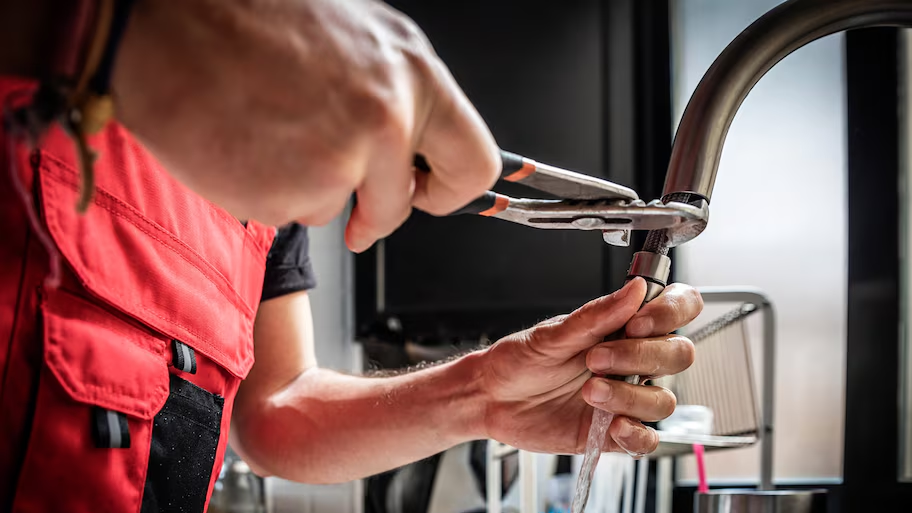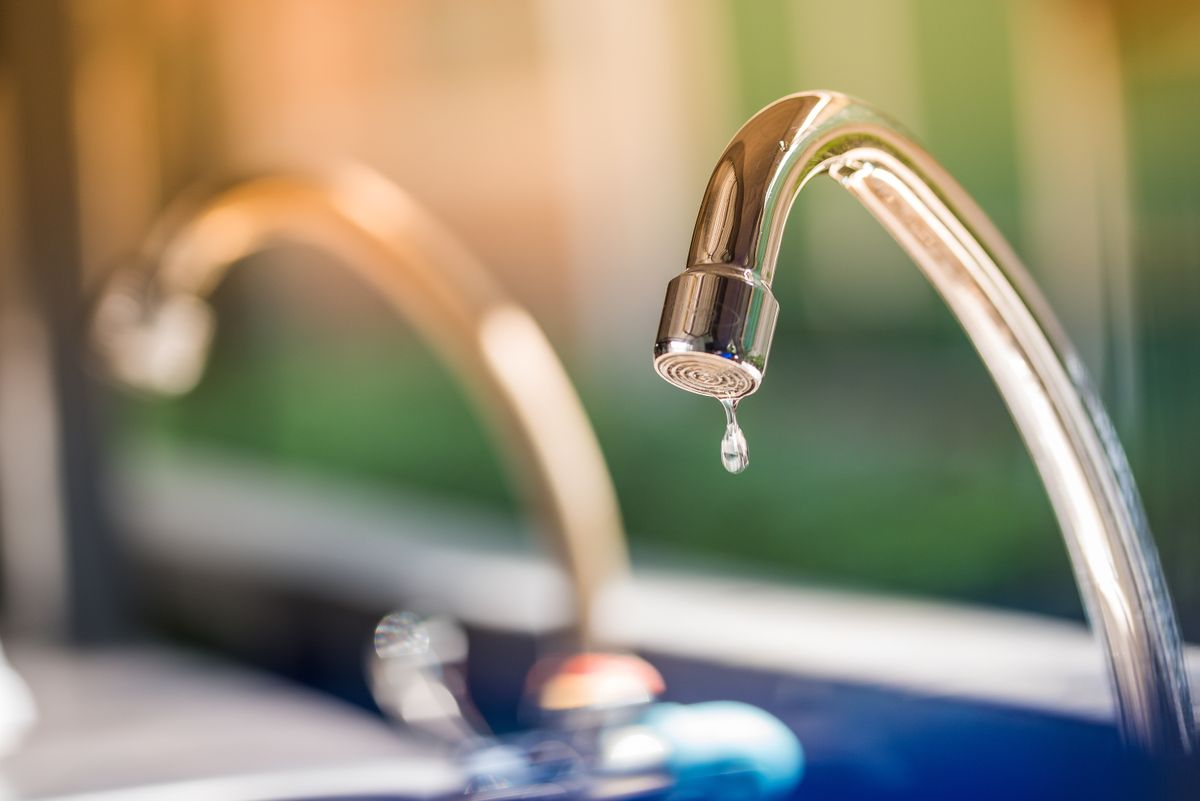Discovering the Importance of Fixing a Dripping Faucet
Discovering the Importance of Fixing a Dripping Faucet
Blog Article
Are you searching for advise on What Causes Leaky Faucets & How To Fix Them?

Dripping taps might appear like a small hassle, yet their impact goes beyond just the aggravation of the noise. From wasting water to sustaining unnecessary economic expenses and wellness risks, overlooking a dripping tap can bring about various consequences. In this short article, we'll explore why it's important to address this typical household problem immediately and efficiently.
Wastefulness of Water
Environmental Influence
Leaking taps add significantly to water wastage. According to the Epa (EPA), a solitary faucet trickling at one drip per second can squander greater than 3,000 gallons of water per year. This not only stress water resources however also impacts environments and wild animals based on them.
Step-by-Step Guide to Fixing a Dripping Tap
Tools Needed
Before attempting to take care of a leaking faucet, gather the necessary devices, consisting of a flexible wrench, screwdrivers, replacement parts (such as washing machines or cartridges), and plumber's tape.
Typical Tap Issues and Their Solutions
Identify the sort of faucet and the certain issue triggering the drip. Usual problems include worn-out washers, corroded shutoff seats, or malfunctioning O-rings. Refer to manufacturer directions or on the internet tutorials for step-by-step support on repair services.
Financial Prices
Boosted Water Bills
Past the ecological effect, leaking taps can pump up water bills significantly. The collected waste over time translates into greater energy expenses, which can have been stayed clear of with prompt repair services.
Possible Building Damage
Moreover, prolonged trickling can bring about damage to components and surfaces surrounding the faucet. Water accumulation can create staining, deterioration, and also structural problems if left ignored, resulting in extra repair service expenses.
Wellness Concerns
Mold And Mildew and Mold Growth
The consistent existence of wetness from a leaking faucet develops a perfect environment for mold and mildew and mold growth. These fungi not only compromise interior air top quality however likewise position wellness dangers, particularly for individuals with breathing problems or allergic reactions.
Waterborne Conditions
Stagnant water in leaking faucets can become a breeding ground for microorganisms and various other pathogens, boosting the danger of waterborne diseases. Impurities such as Legionella microorganisms prosper in stationary water, potentially bring about significant diseases when consumed or inhaled.
DIY vs. Expert Repair service
Pros and Cons of Do It Yourself Fixing
While some may attempt to take care of a dripping faucet themselves, do it yourself repair services come with their own set of difficulties. Without proper understanding and tools, DIY efforts can aggravate the concern or cause incomplete fixings, extending the issue.
Benefits of Working With a Professional Plumber
Hiring a professional plumber makes certain that the underlying source of the leaking tap is dealt with successfully. Plumbings have the know-how and tools to identify and fix faucet concerns efficiently, conserving time and lessening the danger of additional damage.
Ecological Responsibility
Private Payment to Preservation
Taking duty for dealing with leaking faucets straightens with wider efforts toward water preservation and ecological sustainability. Every person's actions collectively make a significant impact on preserving precious sources.
Sustainable Living Practices
By focusing on timely repair work and taking on water-saving habits, individuals add to lasting living practices that profit both existing and future generations.
Preventive Measures
Routine Maintenance Tips
To stop dripping taps, do routine upkeep such as cleaning up aerators, examining for leakages, and replacing damaged parts immediately. Furthermore, think about mounting water-saving gadgets or updating to more reliable fixtures.
Relevance of Prompt Repair Works
Attending to dripping taps as soon as they're noticed avoids additional water wastage and potential damage, eventually saving both water and money in the long run.
Influence On Residential Property Value
Understanding of Well-Maintained Residential Or Commercial Property
Preserving a building in good condition, consisting of addressing maintenance issues like trickling taps, enhances its regarded worth and charm amongst possible customers or renters.
Influence on Resale Worth
Characteristics with well-maintained plumbing components, consisting of taps, command greater resale worths in the real estate market. Addressing trickling faucets can contribute to a favorable impression throughout residential or commercial property assessments and settlements.
Final thought
Attending to a dripping tap surpasses simple convenience; it's a necessary action towards preserving water, minimizing monetary costs, and securing health and wellness and home. Whether through do it yourself repair services or expert aid, acting to fix dripping taps is a tiny yet impactful way to advertise liable stewardship of resources and contribute to a much healthier, much more sustainable future.
How to Fix a Leaky Faucet: Step-by-Step Repair Guide
A leaky faucet may seem like a simple annoyance, but if it's not fixed promptly, that leak could cost hundreds to potentially thousands. From water damage to mold, mildew, and high water bills, even a tiny leak can be catastrophic if left unattended. Damage like this can even affect the overall value of your home, so it's important to take the right approach for leaky faucet repair. You may need the help of a plumber in some cases, but we've got a few tips you can try on how to fix a leaky faucet before calling the pros.
Four Faucet Types
When you're learning how to fix a leaky faucet, the first step is knowing what kind of faucet you're working with! There are four common types.
Cartridge Faucets
Cartridge faucets come in one- or two-handled varieties. In one-handled cartridge faucets, hot and cold water combines in a single cartridge. In the two-handled versions, hot and cold water are controlled separately and mixed in the faucet.
Ball Faucets
Ball faucets have a single lever you push up and down to adjust the pressure and rotate to change the temperature. A slotted metal ball controls the amount of water allowed into the spout.
Compression Washer Faucets
They're the oldest type of faucet, but they're still used in many homes — especially older ones. Compression faucets have two separate handles that, when turned, raise or lower the washer that seals a water valve. This valve stops water from flowing through the faucet when it is turned off.
Disc Faucets
Disc faucets rarely need to be repaired due to their maintenance-free design. The water flow is controlled by two discs — the upper one raises and lowers against a fixed lower disc, creating a watertight seal. If your disc faucet starts leaking, you may need to replace the seals or clean residue buildup from the inlets.
Fixing a Leaky Faucet
Step 1: Turn Off the Water
Whether you're learning how to fix a leaky bathtub faucet or how to fix a leaky kitchen faucet, always turn off the water supply to your working area when you're fixing a leak. The last thing you want is a flood added to your list of things to fix.
Look for the shutoff valves below your sink or around the tub and turn them clockwise to stop the water flow. If your faucet doesn't have shutoff valves, you may need to turn off the water for the whole house. Check to make sure it's off by turning the faucet on. If nothing comes out, you're ready to start the repair.
Step 2: Take Apart the Faucet
How you disassemble your faucet depends on the type of fixture you have. You can use a flathead screwdriver to remove the caps on top of the handle or handles for cartridge and compression faucets. Inside, you should see handle screws. Unscrew these with a screwdriver to remove the handle.
Disc- and ball-style faucets will typically have an inlet screw near the handle, and removing that will reveal the interior of the faucet.
Detach the Valve Stem
For cartridge- and compression-style faucets, you'll see the inner valve stem or cartridge once you remove the faucet handles. If you have a compression faucet, unscrew the brass valve stem. If you have a cartridge faucet, pull out the cartridge. If your cartridge has been in place for a while, it may require some tools or extra force to remove it due to mineral deposits.
Examine and Replace Parts
Once you've removed the parts, check them out to confirm what needs to be replaced. You may see corroded rubber washers, O-rings, stems, or cartridges. On a ball-style faucet, check the seats and springs for damage.
If you need to repair a leaky disc faucet, check the inlet and seals on the lower disc.
Once you determine what parts must be replaced, visit your local hardware store. Bring the damaged parts with you to ensure you can purchase the correct components to replace them.
Clean Valves and Faucet Cavity
If you've removed a stem or cartridge, you may notice mineral buildup in the faucet's threads. Use white vinegar to clean the valve seat by soaking it for a few minutes, then scrub it away with a soft toothbrush and rinse with warm water. You can also clean the interior of the faucet in the same way.
Reassemble the Faucet
Once your faucet is cleaned and the required parts have been replaced, it's time to reassemble it. Put the pieces back together and slowly turn the water supply back on. Doing this slowly is crucial because too much initial water pressure can damage the new hardware you've just installed.
https://homewarranty.firstam.com/blog/how-to-fix-leaky-faucet

As an enthusiastic person who reads about Why Are My Faucets Dripping (And Can I Fix It Myself)?, I assumed sharing that piece of writing was appropriate. Are you aware of another person who is fascinated with the topic? Be sure promote it. Many thanks for taking the time to read it.
Report this page